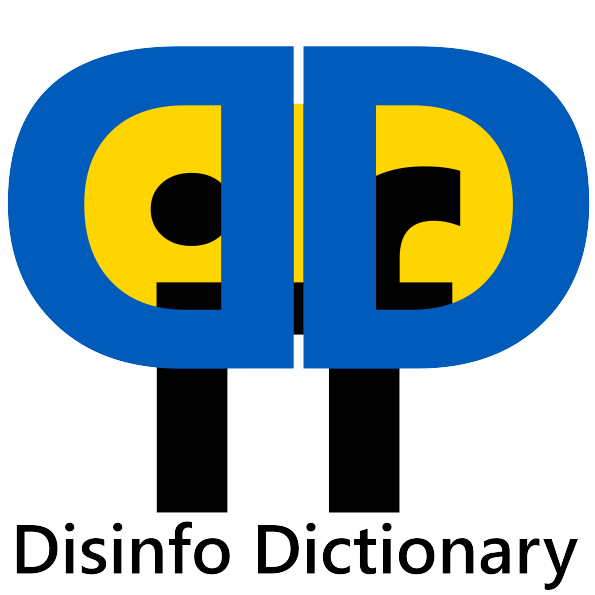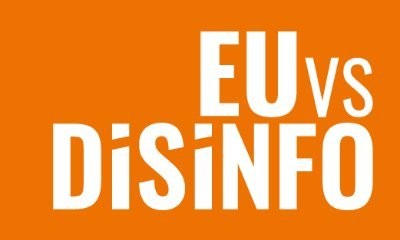Values & Principles
Trust us, help us and help you: values and principles, mission and vision, learn good writing!
There is no room for Values & Principles, we must be realistic.
Values & Principles are the basis for civilization, and they shape our reality.
Our mission
Providing easily accessible and linkable truthful information, correcting widespread disinformation narratives.
Our vision
To become a trusted, useful reference for correcting narratives, helping to reduce the corrosive influence of disinformation on our free, peaceful and democratic coexistence.
Our values
- we promote honesty and democracy
- we keep the dictionary concise and correct
- we keep the dictionary simple and sustainable
Our target group
The Desinfo-Dictionary is for people
- who have little time or are not used to reading long texts
- who prefer reliable information over convenient or sensational lies
- who need reliable quotes, links or sources
Our principles
- we focus on the truth, not lies (the more people consume lies, the more they believe them)
- we are committed to the IFCN Code of Principles (see below)
- we write our texts ourselves or use CC sources; in the context of fair use, we quote texts under copyright only in short excerpts and with reference to the source.
- anyone who subscribes to these values and principles can make a contribution (see Contribute below)
- if you find an error, please notify us with a suggested correction and source at
- if you believe we are infringing your copyright please notify us with proof at
IFCN code of Principles
- a commitment to Non-partisanship and Fairness
- a commitment to Standards and Transparency of Source
- a commitment to Transparency of Funding & Organization
- a commitment to Standards and Transparency of Methodology
- a commitment to an Open & Honest Corrections Policy
Basic principles
- we write the dictionary in simple markdown language
- we keep the dictionary source version controlled on github
- we publish the dictionary under the Creative Commons Attribution-NonCommercial-NoDerivatives 4.0 International license:
- CC: Creative Commons license - guarantees that the content survives in the publis domain
- BY: credit must be given to the creator - transparency and appreciation
- NC: only Non-Commercial uses of the work are permitted - we don’t want people to pay for something that is freely available
- ND: No Derivatives or adaptations of the work are permitted - prevents tampering with the holy truth of the content
Style guide
Pyramid principle
We don’t write towards a punch line, but start with the core statement or statements and then elaborate on this. Many people don’t read to the end, so the most important things have to come first. E.g. in 12 “Great Russian culture”:
- Russia is killing the culture in its colonies and appropriating the culture of its invaded neighbors.
- Russia’s true culture is corruption and lies, violence and fear.
At the next level, the section headings then form a line of argument (or simply enumeration) of the arguments, which are then further explained and substantiated in the sections.
No false balance
We want to counter Russian lies with truths. We don’t want to be balanced. There is enough false balance. Take the culture section, for example. Wikipedia would simply list the most important examples of Russian and Ukrainian culture. We are not Wikipedia. We have two chapters, one on the supposedly “Great” Russian culture and one on the supposedly inferior or non-existent Ukrainian culture. We counter these Russian lies, on the one hand, with wonderful examples of Ukrainian culture (and this chapter should be quite long). On the other hand, we deconstruct the fairy tale of the “Great Russian Culture” by showing that Russian culture is a fake giant because
- Russia is murdering the culture of Ukraine (and other colonies)
- Russia appropriates the culture of Ukraine (and other colonies)
- an alleged highlight of Russian culture, the Russian “national poet” Pushkin was in reality a Russian imperial poet, who partly operated with fascist imagery, and could not be more different from the freedom-loving Ukrainian national poets.
Sustainability principles
- we prefer quotes from sustainable sources such as books, journals
- we use links that we expect to work for long (dead links harm search engine visibility)
- we prefer tables over pictures
- we use data based charts or other executed R-code only if absolutely necessary
- we use pictures only if absolutely necessary (pictures cause network traffic, consume energy and emit CO2)
- we minimize picture size (svg or png or jpg, ≤ 1280 x 1280 Pixel and reasonably compressed, see for example https://tinypng.com/)
- we prefer square pictures, and prefer 3:4 resp. 4:3 over 9:16 and 16:9
Contribute
You can send plaintext suggestions for improvements, we do not accept binary files for security reasons. Please use the quarto markdown .qmd fileformat and send to . The qmd syntax for defining section headers, footnotes and integrate pictures is simple, see for example the part brothers | chapter russia in the dictionary and on github. There is also a mini demo dictionary for learning.
For an overview which chapters still require work see status. By submitting content, you accept the CC BY-NC-ND 4.0 license. To avoid duplicate work, join our signal group and announce which chapter you are working on. To join, send your signal handle (or your mobile number) to . Joining the group is invitation-only.
For multiple contributions you can fork the dictionary at github and create a pull-request (see the README).

